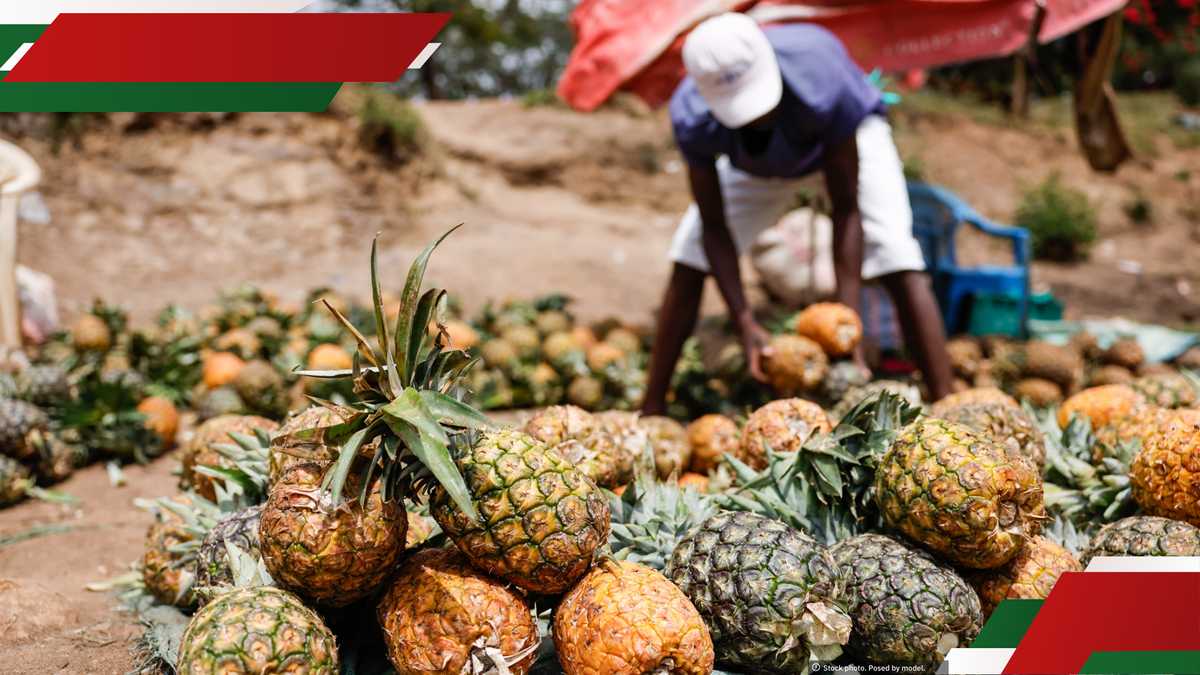-
CAK has approved Del Monte Kenya’s acquisition of 100% of Mananasi Fibre Limited, citing no threat to market competition
-
Mananasi Fibre specialises in converting pineapple waste into textile-grade fibre, compost, and biochar, and will now be fully controlled by Del Monte
-
CAK’s analysis found that the merger will not alter market structures or lead to a dominance issue, as it involves a simple transfer of ownership
Elijah Ntongai, a journalist at .co.ke, has over four years of financial, business, and technology research and reporting experience, providing insights into Kenyan and global trends.
Nairobi — The Competition Authority of Kenya (CAK) has given an unconditional nod to Del Monte Kenya Limited’s acquisition of 100% of Mananasi Fibre Limited.

The deal, which qualifies as a merger under Kenya’s Competition Act, will see Del Monte take full control of Mananasi Fibre.
Mananasi Fibre is a firm that turns pineapple waste into textile-grade fibre, compost, and biochar.
Why did CAK approve Del Monte’s deal?
The approval from CAK was grounded in an extensive evaluation which determined that the merger does not pose any threat to fair competition within the developing sectors of environmentally friendly fibers and agricultural waste recycling.
As stated by CAK, this transaction doesn’t change the market dynamics within the pertinent sectors, such as textiles made from pineapple fiber, compost manufacturing, and biochar production.
CAK indicated that this purchase won’t alter the market share since the seller will withdraw and the buyer will step in, keeping the present competitive landscape intact.
Del Monte, recognized for its extensive pineapple cultivation and canning activities, is anticipated to gain from Mananasi Fibre’s eco-friendly waste management strategies by utilizing its pineapple leftovers effectively.
Mananasi Fiber has emerged as a major participant in transforming pineapple plant waste into compost and biochar, which are soil enhancements increasingly favored due to the changing landscape of agriculture driven by climate change.
The firm likewise engages in the eco-friendly fabric industry, manufacturing fibers that serve as an environmentally friendly substitute for both leather and artificial substances.
Which entity produces pineapple fiber in Kenya?
The CAK report pointed out that Mananasi Fibre competes with companies like Pine Kazi, Eco Nasi, along with numerous small-scale compost producers nationwide.
Likewise, companies such as Biochar Life, Biosorra, and Tera Carbon remain active in a competitive but largely untapped market segment that holds significant promise for expansion.
The Authority concluded that the acquisition would not have an adverse impact on elements of public interest such as employment levels and small and medium-sized enterprise involvement.
According to the parties’ statements, this transaction does not anticipate raising public interest concerns. The consolidation of operations and the ensuing expansion of production are anticipated to generate more job opportunities for both skilled and unskilled laborers. Additionally, the acquirer’s business strategy remains unchanged. Moreover, the merger is not projected to impede small and medium-sized enterprises from entering this crucial marketplace,” noted CAK.
Alternatively, the merger might boost employment by expanding processing capabilities and enhancing overall operational synergy.


Leave a Reply